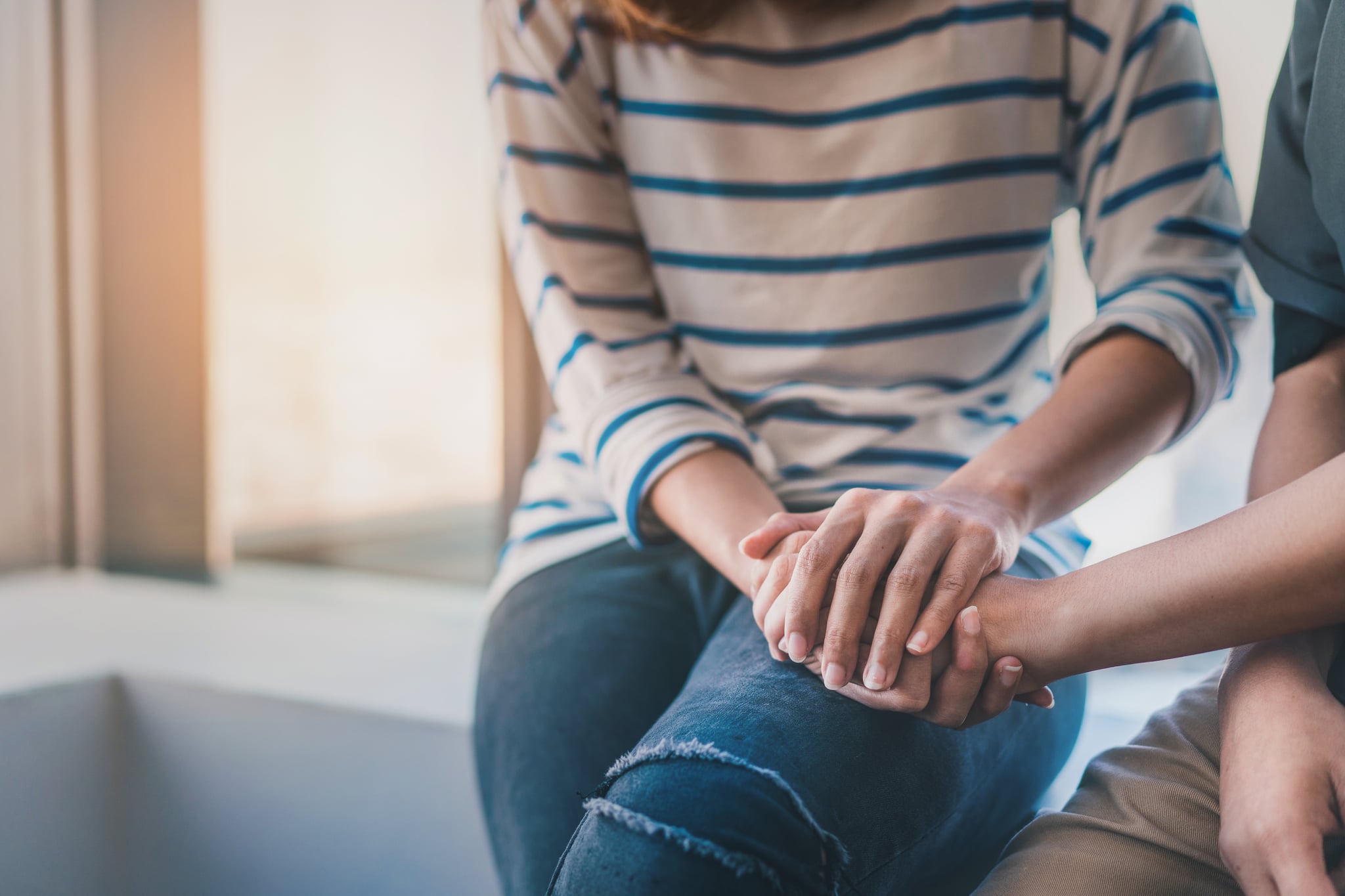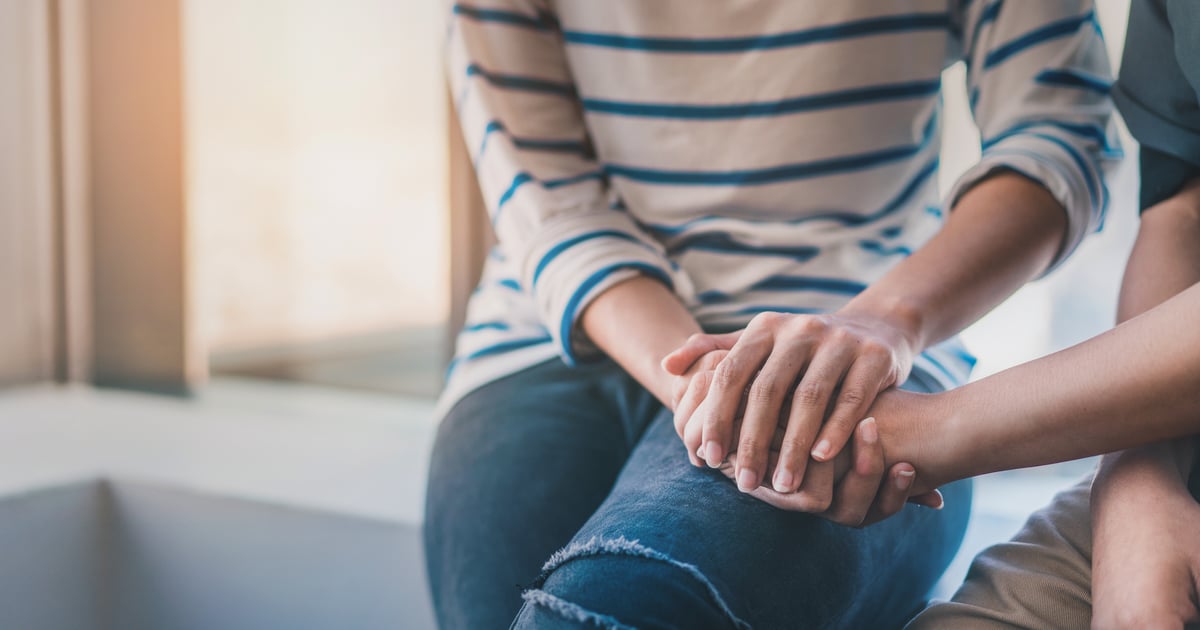Products You May Like

Truly caring for or about someone can be exhausting — hence the term compassion fatigue. The phrase was first coined in 1992 by a nurse, Carla Joinson, to describe the physical, emotional, and psychological experience of professional healthcare workers, per the Online Journal of Issues in Nursing. Headaches, mood swings, irritability, dread of going to work, and lack of joy in life are all listed side effects and behaviors of compassion fatigue.
In more recent times, though, the term has been used to describe the feeling of when we empathetically pour so much energy into the needs of others, we no longer have any space for ourselves. With a 24-hour news cycle, the demands of one’s career, and the desire to be a compassionate member of society, that level of empathy and desire to help can leave you feeling depleted at times. If you can relate, you’ve probably experienced compassion fatigue.
What Is Compassion Fatigue?
Compassion fatigue is no longer limited to those in the healthcare field. “It could be in any area of your life where you’re just overpouring your cup full of empathy,” California-based licensed psychotherapist Natalie Jones, PsyD, explains. “That could be in your job, that could be in the news, that could be to friends or family that need your support.” Overexerting yourself like this (e.g., via doomscrolling, consistently supporting a loved one, or constantly taking on the workload of others) leaves you feeling “beyond burned out,” Dr. Jones says. You become consumed with the trauma and stress of others and, in turn, experience more stress. Moreover, “it leads to to a life where you’re not showing up and being fully present for yourself.” And the worst part is that it could eventually leave you feeling numb and not wanting to care at all anymore.
What Are the Signs and Symptoms of Compassion Fatigue?
“There’s an impact of showing up physically, emotionally, and psychologically for others,” Dr. Jones says. Symptoms of compassion fatigue can play out in many ways, impacting the mind, body, and spirit. Here are symptoms Dr. Jones says to watch out for in your daily life.
- Feeling like you want to show up for everybody but yourself
- Low energy
- Trouble focusing or managing your mood
- Feeling selfish doing things for yourself
- Coming off as irritable
- Having the urge to completely disengage from family, friends, and peers
- Trouble sleeping and managing work-life balance
What About Compassion Fatigue vs. Burnout?
Both compassion fatigue and burnout involve a deep level of exhaustion. But burnout is specifically marked by emotional exhaustion and withdrawal and is not trauma related, according to the American Institute of Stress (AIS). Compassion fatigue, however, can involve secondary trauma and is also defined as “the emotional residue or strain of exposure to working with those suffering from the consequences of traumatic events,” per the AIS. Secondary trauma can also occur outside of the workplace. It can come from the content you consume and the people you’re surrounded by. The AIS also notes that while compassion fatigue and burnout are different, the two can coexist.
How Do You Combat Compassion Fatigue?
“The best way to combat [compassion fatigue] is to be mindful about your own energy and your own space and be intentional about protecting it,” Dr. Jones says. The key is to set boundaries — with yourself, friends and family, your job, and social media. Here’s what Dr. Jones recommends.
- Start by finding a good support system. That might mean talking to a therapist or a good group of friends. If you’re feeling guilty about saying no to others or taking time for yourself, “I recommend that people get curious about what they’re feeling,” Dr. Jones says. “Guilt is usually when you feel like there’s a moral violation of some kind.” It’s important to explore with the people you trust what the violation is and why you feel that way.
- Pay attention to your nighttime routine. Take note of your patterns and the kind of sleep you’re getting. Focus on setting a consistent sleep schedule where you go to bed at the same time and are getting quality rest. (Seven to nine hours of sleep a night is recommended!)
- Explore ways to decompress. Dr. Jones recommends spending 15 minutes in the morning to journal or read a book or having regularly scheduled dinners with friends, as long as it’s something where “you’re allowed to just be in your own skin without feeling like you have to show up for everybody else,” she says.
- Don’t overdo it a work. “Make sure that you’re doing your job and nothing more,” Dr. Jones says. Go in or sign on when you’re supposed to, and leave when it’s time to go, she adds. If you’re in a position where you can leave early on occasion when you need a break, make sure that you’re taking advantage of that opportunity. And be vocal about your workload with your supervisor or manager when it becomes too much. Hopefully, they can help delegate some of your tasks to others on your team.
- Take a relationship audit of your friends and family. “Start taking a look at people who are only taking from your energy reservoirs,” Dr. Jones says. Give yourself permission to get the distance you may need from those relationships. The next time a family member or friend asks you to do something that would leave you feeling drained, Dr. Jones says to consider this response: “I’d love to do that for you. But unfortunately, I’m not in a position to do that.” You may also consider asking them to show up for you — whether that’s in giving you space or taking on a simple task that would make your life easier.
- Limit your social media use. Control the amount of time you spend on apps that make you feel depleted by setting time limits through your phone. Practice mindfulness by being hyperaware of the type of content you’re viewing and how it makes you feel. For example, maybe you limit your news intake to 15 minutes in the morning if that content has been triggering you lately. And then be intentional about looking at something fun or funny to counteract that, Dr. Jones says.
Ultimately, compassion fatigue is something that most people will experience, she says. But “you have to remember that you cannot pour from an empty cup. You’ve got to take care of yourself before you can show up for anybody else.”
